what is one way you would like to change the world, and how can you help to bring about this change?
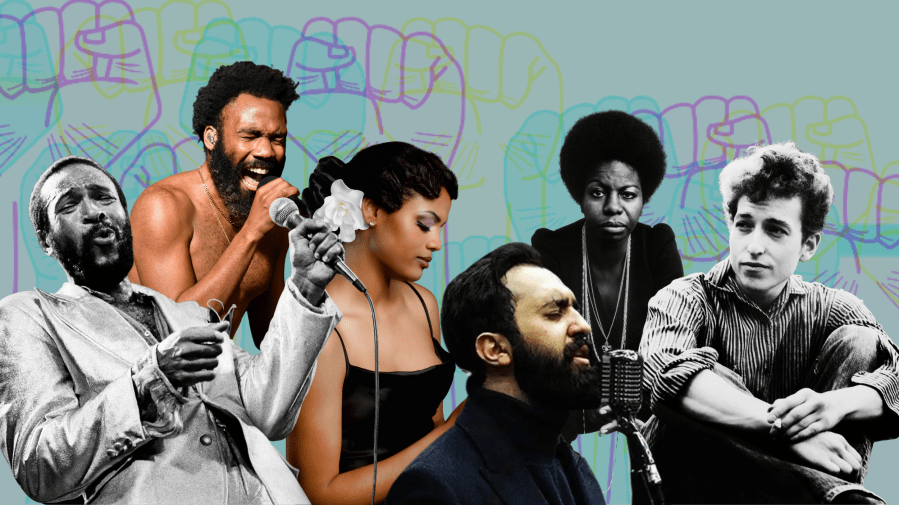
Music is a universal language that defies international borders and celebrates diverse cultures. It conjures feelings no other medium can, stirring upward physical and emotional reactions that can change our thoughts, behavior and actions. It helps the states limited ourselves on deeper levels and taps into a part of the human condition that motivates us to make a difference. Music isn't just enjoyable — information technology's immensely powerful, and that's a key reason why nosotros use information technology to send letters and inspire action.
Because of this power, protests and music are often interlinked. In addition to "amplifying the words" in songs that can represent demands for change, Columbia University music professor Mariusz Kozak told The Washington Post, "music is important for expressing political messages because information technology creates a sense of emotional connection and social coherence, even amid strangers." It's that social coherence — the working together — that can really change the world. And these powerful protest songs demonstrate exactly how.
"Foreign Fruit" by Billie Holiday (1939)
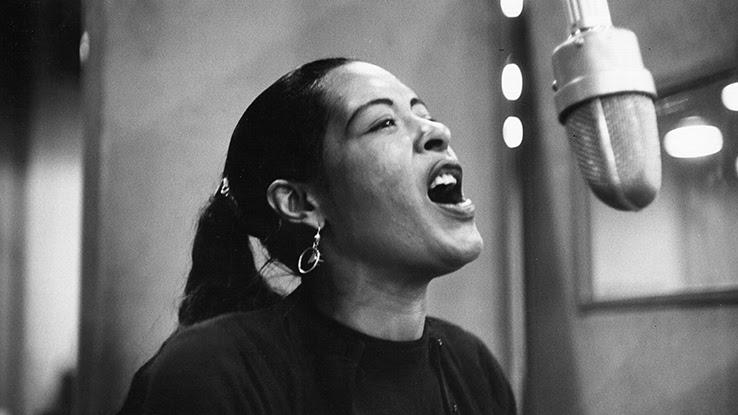
Written and composed by Jewish school teacher Abel Meeropol and recorded by famed jazz singer Billie Holiday, "Foreign Fruit" protested the horrific lynchings of Blackness Americans, particularly during the belatedly 19th and early 20th centuries. Released the same year as Gone With the Wind, "no song in American history has ever been then guaranteed to silence an audience or generate such discomfort."
Of the vocal, Holiday said, "The first time I sang it, I thought it was a fault… there wasn't even a patter of applause when I finished. Then a solitary person began to handclapping nervously. Then suddenly, everyone was clapping." The haunting ballad soon became an canticle for the ongoing anti-lynching motility in the U.South., and, later, the emerging ceremonious rights movement of the 1950s and 1960s.
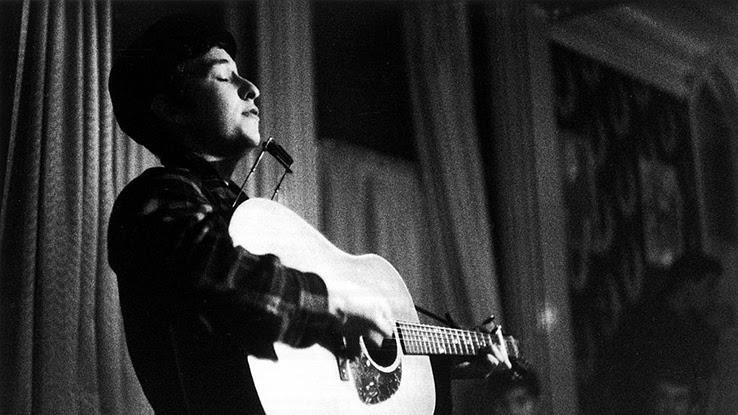
Bob Dylan has crafted a career out of penning poetic and poignant protestation ballads. He wrote "A Hard Rain's A-Gonna Fall" in response to the suffering going on in the earth and what he saw as an inescapable evil taking over society post-obit the Cuban Missile Crunch.
Originally written as a poem and based on an old English folk ballad, the song's lyrics tell of a mother questioning her wayward son about where he's been, and his answers reveal that he was traveling the earth, but finding heartbreak, ache, and vicious condone for people and the environment. "A Hard Rain'due south A-Gonna Fall" was released at the height of the Cold War, and members of the U.S.'southward anti-nuclear state of war motion used the vocal to convey their opposition to the dangers of nuclear technologies.
"Mississippi Goddam" past Nina Simone (1964)
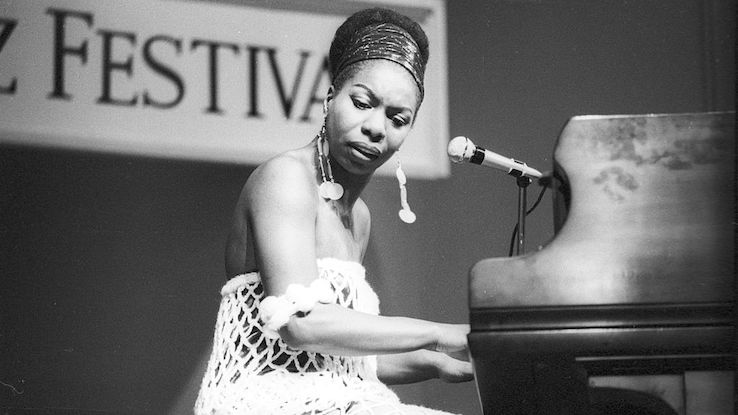
Vocalist and pianist Nina Simone'southward "Mississippi Goddam" took only one hour to compose. It was written in response to the murders of Emmett Till and Medgar Evers in Mississippi and the 16th Street Baptist Church building bombing that took place in Birmingham, Alabama, ultimately protesting the "agonizingly deadening" step of justice and social change for Black Americans. "It was my first civil rights song," Simone later on recalled, "and it erupted out of me quicker than I could write it down."
Initially performed in front of a predominantly white audition at Carnegie Hall, the song was quickly banned in some Southern states — and just as quickly became an anthem for the civil rights movement. In 2019, the Library of Congress preserved the protest rails in the National Recording Registry for its cultural, historical and aesthetic significance.
"What's Going On" by Marvin Gaye (1971)
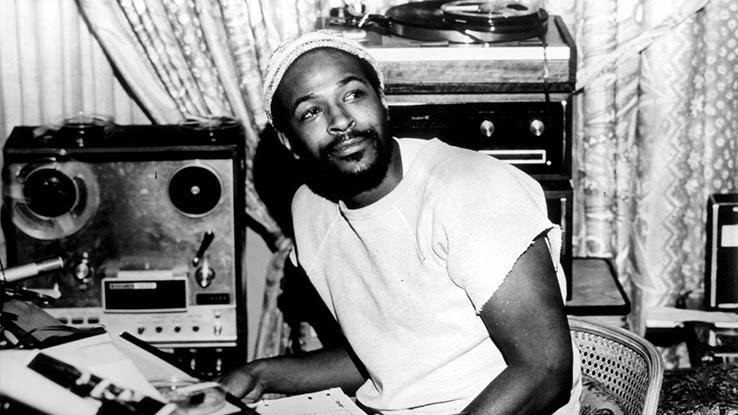
In the early 1970s, protests confronting the Vietnam War peaked, unemployment rates soared, mass incarceration of people of color proliferated and police brutality ran unchecked across the country. After witnessing a clash between police and protestors, Renaldo "Obie" Benson of The Four Tops was inspired to write "What's Going On," a vocal that spoke not only of the stifling effects of violence on order but that also called for unification and togetherness to combat these problems.
Marvin Gaye recorded the song after deciding to change the themes in his music in response to the unrest he saw around the country, request himself, "With the globe exploding effectually me, how am I supposed to go on singing dear songs?" The juxtaposition of its jazzy melody and pained lyrics captured attention in Detroit, where Gaye had lived for years, and protestors at that place used the empowering vocal to spark modify. Inside a few years following the release of "What's Going On," Detroit elected its first Black mayor and formed a civilian-led police commission. The song was "revolutionary," explains Detroit historian Ken Coleman. "'What's Going On' helped people realize these changes could happen."
"Sunday Bloody Sunday" by U2 (1983)
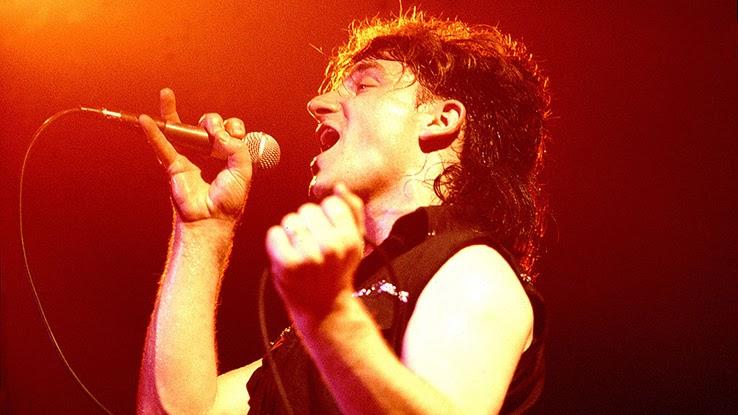
In 1972, unarmed people marched in Londonderry, a large city in Northern Ireland, to protest the British internment of suspected Irish nationalists without a fair trial. British soldiers shot 26 of the protestors, killing fourteen and wounding others who attempted to aid victims of the massacre.
In recognition and protestation of the event, Irish gaelic stone band U2 penned "Sunday Bloody Sunday." The song quickly came to symbolize a decades-long period chosen the Troubles, during which Northern Republic of ireland experienced intense, violent conflict over political and religious tensions. "Sunday Bloody Lord's day" about immediately brought worldwide attention to Northern Ireland's dangerous social climate. Information technology remains one of the band'due south well-nigh popular songs to this day — and i of the most powerful protest songs ever penned.
"Fight the Ability" by Public Enemy (1989)
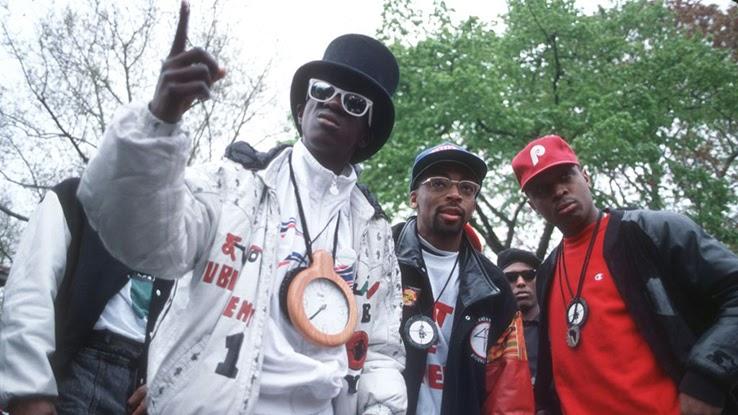
At the end of the 1980s, the U.s. saw significant increases in scissure-cocaine addiction throughout major cities, a government that intentionally neglected the populations well-nigh impacted past the AIDS crunch, and continued social unrest as groups around the land protested social and racial inequalities. These events and conditions inspired Public Enemy to lay downwards the lyrics for "Fight the Power" at the request of managing director Spike Lee for his 1989 flick Do the Right Thing.
Using multiple loops and samples of speeches from ceremonious rights leaders, the song became an anthem expressing "revolutionary anger" over "a crucial period in America's struggle with race." Its lyrics demand that listeners "fight the powers that be" — a line that today's social activists still use every bit a rallying cry to mobilize and fight dorsum.
"This Is America" by Childish Gambino (2018)
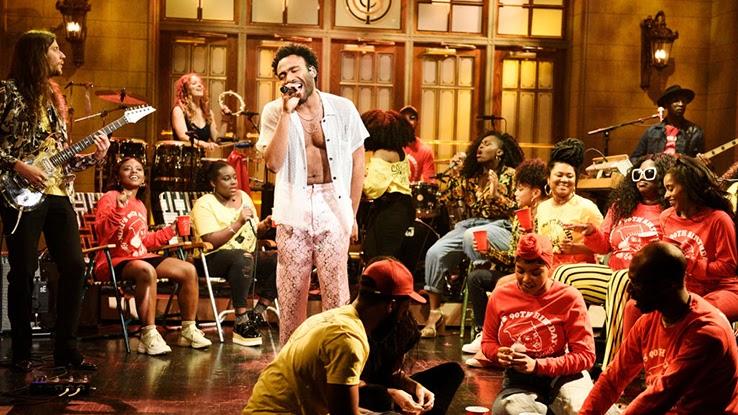
Actor Donald Glover, who as a musician goes by the pseudonym Childish Gambino, wrote and produced this contemporary protest rail to accost the ongoing horror of mass shootings and the epidemic of gun violence in the U.S. The spooky song also highlights other critical social problems affecting American gild, in particular by focusing on the grotesque effects of systemic racism.
"This Is America" addresses the pain that arises from living under a system that perpetuates harmful treatment of marginalized groups, explaining how people try to work on that hurting by accepting it and getting by it — but they're never fully able to do so. The song became a call to action during the widespread 2020 protests against police brutality that developed across the country post-obit George Floyd's murder, and it remains a "surreal, visceral statement" that implores American society to pursue justice.
"Pareh Sang" by Mehdi Yarrahi (2018)
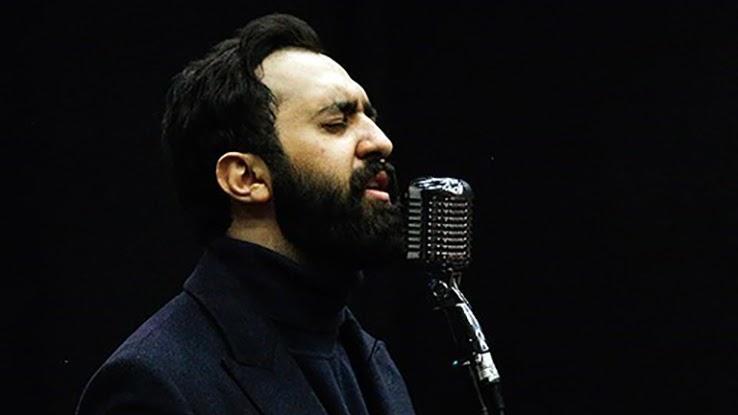
Translating to "Broken Rock," "Pareh Sang" decries the devastation artist Mehdi Yarrahi saw taking place around his home province in Iran as a result of the Iran-Iraq War that spanned most of the 1980s. Later on the song's release, Iranian officials asked Yarrahi to modify the song'south controversial lyrics, which tell of the lasting trauma of state of war and the suffering the Iran-Iraq War perpetuated for decades in Yarrahi's hometown.
Yarrahi was censured subsequently refusing to change those lyrics, and authorities clamped down on the singer, pushing him to remove the song from his catalog entirely. But Yarrahi continued refusing to alter the lyrics, performing them at a alive concert before being barred from playing birthday. Still, the song continues to raise awareness and inspire activism among newer generations of Iranians.
"Patria y Vida" by Gente de Zona, Yotuel and Descemer Bueno (2020)
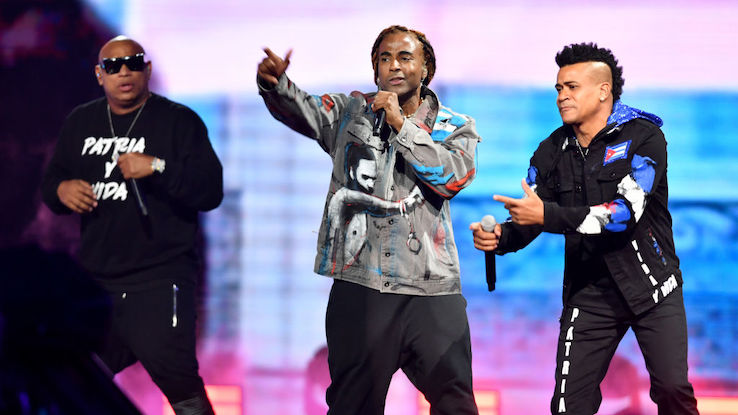
What translates to "Homeland and Life" became a rebuke of Republic of cuba's official slogan, "Homeland or Expiry," in the wake of 2021 protests confronting Cuba'south communist government, its response to the COVID-xix pandemic and an economic crunch impacting the country'due south food and medicine supplies. Singer Yotuel Romero and swain Cuban musicians Gente de Zona, Descemer Bueno, Maykel Osorbo and el Funky composed the vocal in an effort to repossess and revise Cuba's motto and protestation the Cuban government's continued failure to invest in bettering the lives of its citizens.
The artists received intense backlash from Cuba's Communist Party following the music video's release in February of 2021. However, the song went viral, its lyrics resonating with demonstrators protesting the country's "deteriorating living weather condition, electricity outages and shortages of food and medicine" before and during the pandemic. "Patria y Vida" is often heard being chanted at protests and marches as a call for freedom and "a new dawn."
Source: https://www.ask.com/entertainment/protest-songs-that-changed-the-world?utm_content=params%3Ao%3D740004%26ad%3DdirN%26qo%3DserpIndex
0 Response to "what is one way you would like to change the world, and how can you help to bring about this change?"
Postar um comentário